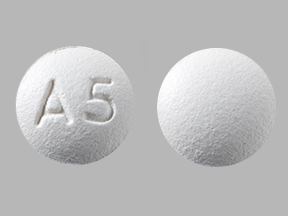Iclusig Disease Interactions
There are 5 disease interactions with Iclusig (ponatinib).
Ponatinib (applies to Iclusig) liver impairment
Major Potential Hazard, Moderate plausibility. Applicable conditions: Liver Disease
Hepatotoxicity, liver failure and death have occurred in ponatinib-treated patients. Interrupt ponatinib if hepatotoxicity is suspected. It is recommended to monitor hepatic function and to administer ponatinib at a dose of 30 mg once daily in patients with hepatic impairment. Care should be exercised when using ponatinib in patients with hepatic impairment as the safety of multiple doses, or doses higher than 30 mg have not been studied in these patients.
References
- "Product Information. Iclusig (ponatinib)." Ariad Pharmaceuticals Inc (2012):
BCR-ABL tyrosine kinase inhibitors (applies to Iclusig) cardiovascular disease
Moderate Potential Hazard, Moderate plausibility.
Cardiovascular events, including arterial vascular occlusive events, peripheral arterial occlusive events and ischemic cerebrovascular events have been reported in patients receiving tyrosine kinase inhibitors. If acute signs or symptoms of cardiovascular events occur, patients should seek immediate medical attention. The cardiovascular status and risk factors of patients should be evaluated prior to therapy and cardiovascular monitoring and management should take place during treatment.
References
- "Product Information. Gleevec (imatinib)." Novartis Pharmaceuticals (2022):
- "Product Information. Sprycel (dasatinib)." Bristol-Myers Squibb (2006):
- "Product Information. Tasigna (nilotinib)." Novartis Pharmaceuticals (2007):
BCR-ABL tyrosine kinase inhibitors (applies to Iclusig) fluid retention
Moderate Potential Hazard, Moderate plausibility. Applicable conditions: Congestive Heart Failure, Pleural Effusion
Fluid retention occurs with BCR-ABL tyrosine kinase inhibitors therapy and may manifest as pericardial effusion, pleural effusion, pulmonary edema, and/or peripheral edema. Caution should be taken when using these drugs in patients with preexisting fluid retention or congestive heart failure. Monitor and manage patients using standards of care. Interrupt, reduce dose or discontinue therapy as necessary.
References
- "Product Information. Gleevec (imatinib)." Novartis Pharmaceuticals (2022):
- "Product Information. Sprycel (dasatinib)." Bristol-Myers Squibb (2006):
- "Product Information. Tasigna (nilotinib)." Novartis Pharmaceuticals (2007):
- "Product Information. Bosulif (bosutinib)." Pfizer U.S. Pharmaceuticals Group (2012):
BCR-ABL tyrosine kinase inhibitors- bone marrow suppression
Moderate Potential Hazard, Moderate plausibility. Applicable conditions: Bone Marrow Depression/Low Blood Counts
Thrombocytopenia, aplastic anemia, agranulocytosis and neutropenia occur with BCR-ABL tyrosine kinase inhibitors. Therapy with these drugs should be administered cautiously in patients with preexisting bone marrow suppression. A complete blood count should be performed every 1-2 weeks for the first month of therapy and then monthly thereafter, or as clinically indicated. To manage myelosuppression, withhold, reduce dose, or discontinue therapy as necessary.
References
- "Product Information. Gleevec (imatinib)." Novartis Pharmaceuticals (2022):
- "Product Information. Sprycel (dasatinib)." Bristol-Myers Squibb (2006):
- "Product Information. Tasigna (nilotinib)." Novartis Pharmaceuticals (2007):
- "Product Information. Bosulif (bosutinib)." Pfizer U.S. Pharmaceuticals Group (2012):
Multikinase inhibitors (applies to Iclusig) lung toxicity
Moderate Potential Hazard, Moderate plausibility. Applicable conditions: Pulmonary Impairment, Interstitial Pneumonitis
The use of certain multikinase inhibitors has been associated with pulmonary toxicity. Serious cases of interstitial lung disease (ILD), including fatal cases and interstitial pneumonitis or pulmonary fibrosis have been reported. Caution is recommended when using these agents in patients with a history of interstitial pneumonitis or pulmonary fibrosis or those patients presenting with acute onset of new or progressive unexplained pulmonary symptoms such as dyspnea, cough, and fever pending diagnostic evaluation. If ILD is confirmed, these agents should be permanently discontinued and appropriate measures should be instituted. Treatment should be immediately withheld in patients diagnosed with ILD/pneumonitis and permanently discontinued if no other potential causes of ILD/pneumonitis have been identified.
References
- "Product Information. Vandetanib (vandetanib)." Astra-Zeneca Pharmaceuticals (2011):
- "Product Information. Zelboraf (vemurafenib)." Genentech (2011):
- "Product Information. Mekinist (trametinib)." GlaxoSmithKline (2013):
- "Product Information. Zykadia (ceritinib)." Novartis Pharmaceuticals (2014):
- "Product Information. Zydelig (idelalisib)." Gilead Sciences (2014):
- "Product Information. Alecensa (alectinib)." Genentech (2015):
Iclusig drug interactions
There are 566 drug interactions with Iclusig (ponatinib).
Iclusig alcohol/food interactions
There is 1 alcohol/food interaction with Iclusig (ponatinib).
More about Iclusig (ponatinib)
- Iclusig consumer information
- Check interactions
- Compare alternatives
- Pricing & coupons
- Reviews (2)
- Drug images
- Side effects
- Dosage information
- Patient tips
- During pregnancy
- FDA approval history
- Drug class: BCR-ABL tyrosine kinase inhibitors
- Breastfeeding
- En español
Related treatment guides
Drug Interaction Classification
| Highly clinically significant. Avoid combinations; the risk of the interaction outweighs the benefit. | |
| Moderately clinically significant. Usually avoid combinations; use it only under special circumstances. | |
| Minimally clinically significant. Minimize risk; assess risk and consider an alternative drug, take steps to circumvent the interaction risk and/or institute a monitoring plan. | |
| No interaction information available. |
Further information
Always consult your healthcare provider to ensure the information displayed on this page applies to your personal circumstances.


